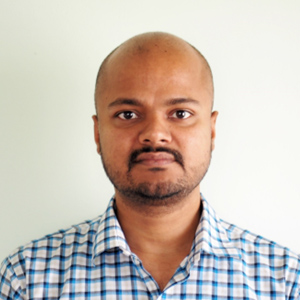Biplab Sarkar, PhD

Biplab Sarkar, PhD, serves as a Cotswold Foundation Postdoctoral Fellow in the research group led by Prof. Christopher B. Rodell in the School of Biomedical Engineering, Science and Health Systems.
Coming from a small town in Eastern India, Dr. Sarkar initially trained in protein chemistry and earned a master's degree at the Indian Institute of Technology. After obtaining a PhD at Rice, he focused on Biomedical Engineering during postdoctoral research, delving into diseases where the immune system is pivotal.
Currently, Dr. Sarkar develops injectable or implantable materials, such as nanoparticles and gels, focusing on macrophages—cells crucial for ingesting pathogens and dead cells. These macrophages are pivotal in iron recycling, heat generation, heart conduction, and kidney obstruction prevention. Developed therapies target macrophage properties, addressing diseases like cancer and inflammation related to tissue damage, such as heart failure.
Learn more about Dr. Sarkar’s current research, advice tips, and challenges here:
What observation is your research based on? What started this research?
It has become evident that tissue injury provokes a sequence of response from immune cells. Typically, these immune responses contribute to the healing process. However, in certain scenarios, such as a heart attack or traumatic brain injury, this immune response may hinder healing. Our goal is to tune this immune response to facilitate tissue healing and stabilize tissue function, using nanoparticles. The research originated with Prof. Christopher B. Rodell’s groundbreaking finding that certain immune cells can be fooled into “taking meds” by hiding drugs inside sugary nanomaterials.
What advice would you give to someone (i.e. a graduate student) that is considering your current path as a postdoc?
If you encounter a roadblock in your professional career, try to stay the course, as in science, you will get second chances. Failures will not destroy your career, as long as you are willing to persevere.
What was your biggest personal challenge in getting to where you are today? Do you have any advice to help anyone that is currently going through a similar situation?
I’m an international scholar. It’s a bit difficult not seeing family members for long periods of time. For people in my situation, I suggest blocking off an hour each weekend for video calls with family members who are in other countries.
Are there any career pathways you’re considering after this position as a postdoc? How does your current postdoc experience translate to your potential career path?
I plan to stay in academic research as a group leader or a professor. The current postdoc experience in the Rodell lab has taught me not only laboratory skills, but also grantsmanship and project management skills, which are essential for maintaining a thriving research lab.
Contact the Office of Postdoctoral Affairs
Graduate School of Biomedical Sciences and Professional Studies
Drexel University College of Medicine
Health Sciences Building
60 N 36th Street
Philadelphia, PA 19104
Natalie Chernets, PhD
Director of Postdoctoral Affairs & Professional Development
267.359.2302
natalie.chernets@drexel.edu
For more information, please contact the Graduate School of Biomedical Science and Professional Studies
CoM_GraduateSchool@drexel.edu
Back to Top